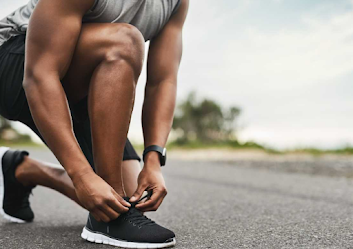Introduction
Running is not just an activity; it's a lifestyle. Whether you're an avid marathoner or a casual jogger, the right pair of running shoes can make a world of difference in your performance and overall comfort. In this comprehensive guide, we'll dive deep into the world of running shoes, helping you make an informed decision when choosing the best pair for your needs.
Why Are Running Shoes Important?
Before we delve into the specifics, let's understand why selecting the right running shoes matters.
The Anatomy of Running Shoes
To choose the best running shoes, you must first understand their components. Here's a breakdown:
1. Outsole
The outsole is the outermost layer of the sole, responsible for providing traction and durability.
2. Midsole
The midsole provides cushioning and support, and it plays a vital role in absorbing shock while running.
3. Upper
The upper part of the shoe is responsible for holding your foot in place and providing breathability.
4. Insole
The insole is the inner part of the shoe that offers additional cushioning and comfort.
ads
Types of Running Shoes
Not all running shoes are created equal. There are various types designed for specific purposes:
1. Road Running Shoes
Ideal for running on pavements, these shoes provide cushioning and support for a smooth ride.
2. Trail Running Shoes
If you enjoy off-road running, these shoes offer enhanced traction and protection.
3. Racing Shoes
Designed for competitive runners, racing shoes are lightweight and built for speed.
ads
Factors to Consider
When selecting the best running shoes, consider the following factors:
1. Foot Type
Determine your foot type - neutral, overpronation, or underpronation - to find the right level of arch support.
2. Shoe Size
Ensure a proper fit by getting your feet measured and leaving some room for movement.
3. Terrain
Choose shoes that match the terrain you'll be running on.
4. Cushioning
Select the level of cushioning that suits your comfort and running style.
5. Durability
Invest in shoes that are built to last, especially if you're a frequent runner.
ads
Top Running Shoe Brands
Several brands excel in producing high-quality running shoes:
1. Nike
Known for innovation and style, Nike offers a wide range of running shoe options.
2. Adidas
Adidas combines fashion and function, catering to various running needs.
3. New Balance
For those seeking comfort and stability, New Balance is a reliable choice.
Finding the Perfect Fit
To ensure you get the perfect fit, follow these steps when trying on running shoes:
ads
1. Shop in the Evening
Your feet tend to swell throughout the day, so it's best to shop for shoes in the evening when they're at their largest.
2. Wear Appropriate Socks
Try on shoes with the same type of socks you plan to wear during your runs.
3. Test Them Out
Take a short jog or brisk walk in the store to feel how the shoes perform.
ads
Conclusion
Choosing the best running shoes is a crucial decision for any runner. With the right pair, you can enhance your performance and minimize the risk of injuries. Remember to consider your foot type, terrain, and personal preferences when making your choice.
ads
FAQs
1. How often should I replace my running shoes?
It's recommended to replace your running shoes every 300-500 miles or when you notice signs of wear and tear.
2. Are expensive running shoes worth the investment?
Expensive running shoes often come with advanced technology and better materials, providing enhanced comfort and durability. They can be a worthwhile investment for serious runners.
3. Can I use running shoes for other activities like walking or cross-training?
While running shoes are specifically designed for running, many can also be suitable for activities like walking and cross-training. However, it's essential to choose the right shoe for each activity for optimal performance and comfort.
4. What should I do if my running shoes cause blisters?
If your running shoes are causing blisters, it may be due to an improper fit or the wrong type of shoe for your foot. Consider getting professionally fitted for running shoes to address the issue.
5. Is it necessary to break in new running shoes?
Modern running shoes are designed to be comfortable right out of the box, but it's still a good idea to gradually break them in with shorter runs to ensure they fit your feet perfectly.
ads





